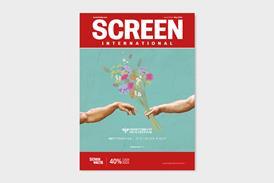Despite having a key role in international film funding, Germany has long struggled to gain recognition for its locally produced films.
Its film-makers were accused of "lacking an unmistakable style" by the Cannes artistic director this year when, for the eighth consecutive year, no German film was chosen for the competition. To add to the problems, German local market share was only 12.5% last year.
This year, however, things look very different. Constantin Films' Der Schuh Des Manitu - a western parody by Michael 'Bully' Herbig - smashed previous box-office records on its opening last month and stands as the most successful local film of 2001, with 4.4 million admissions to date ($22.3m).
German films also dominate the line-up at the Montreal World Film Festival, with four chosen in all. Cannes has also thrown an olive branch by appointing a German correspondent to improve relations between the festival and the industry.
Der Schuh Des Manitu follows on the heels of the success of films such as Das Experiment, Emil Und Die Detektive, Pettson & Findus and Maedchen Maedchen in the first half of the year. Together, they are expected to push German local box office nearer to a 16%-17% share.
In fact, the German Federal Film Board (FFA) reported that, by the beginning of May, no less than five local films had topped the one million admission mark. Only five did so during the whole of 2000.
"It would be unrealistic to think that we can reach the levels France has experienced in the past six months," says Ellen Wietstock of the film political information service Black Box, referring to the 50% share that local films have achieved there. "We have also had breakaway films like Amelie here in the past with Der Bewegte Mann and Knockin' On Heaven's Door where the local share suddenly shot up. But I think we should concentrate our thoughts on what is realistic and practical, and that means between 10% and 20%."
For Berlin Film Festival director Dieter Kosslick "German cinema's current situation is distinguished by its diversity and the appearance of more genres, as well as by the film-makers' desire to reach their target groups." The coming months are a case in point, with releases as diverse as the animation Kommando Stoertebeker, family film Das Sams and the comedy Mostly Martha.
But despite high profile films such as Run Lola Run, German cinema still struggles to achieve consistent international standout. Admissions to German films in the European Union (EU) outside Germany accounted for just 5.8% of the EU total admissions in 2000.
And despite huge outcries in the industry, German films have been largely passed over by private film funds which prefer to back projects with international potential shot in English. This rules out many local German productions.
That said, the very public debate about film funds has led to change. Many of the funds now insist projects must incorporate some German element, such as location or post-production work. This was the case with Enemy At The Gates, Taking Sides, The Cat's Meow and Joe And Max. "Through the 'back door' of these funds, German actors are getting a chance to work on international productions and become known to a wider audience", says PR specialist Felix Neunzerling of Berlin-based Zoom Medienfabrik. For example, Moritz Bleibtreu, Armin Rohde and Ulrich Tukur appeared in Taking Sides, with Harvey Keitel and Stellan Skarsgard, and Tukur and Ulrich Muehe were recently shooting in Constantin Costa Gavras' The Eyewitness. Their experience can only benefit German productions, raising standards and professionalism.
However, there remain problems for the German industry. "The range of films made in Germany is not represented in the cinemas," Neunzerling says, "as only half of those produced get there. The possibility of new names establishing themselves is limited, so it is not surprising when foreign festival directors link Germany only with Fassbinder and co."
He says more and more German films are stranded as they are 'too commercial' for small distributors like Basis Film but are passed over by the Neuer Markt-listed companies, as some rights are not available.
Aware of the dilemma, Neunzerling has come up with an initiative called Pearls (Perlen) to send a package of German films on tour in Germany from next spring with Central Film handling the cinema booking. He says: "our task will be to create a brand and make the showcase an event where the directors and actors make appearances at screenings." So far, Neunzerling has been offered Philip Groening's prize-winning L'Amour L'Argent L'Amour, Mika Kaurismaki's Highway Society and Otto Alexander Jahreiss' Zoom - which, paradoxically, has already been picked up for distribution in France before Germany.



















No comments yet